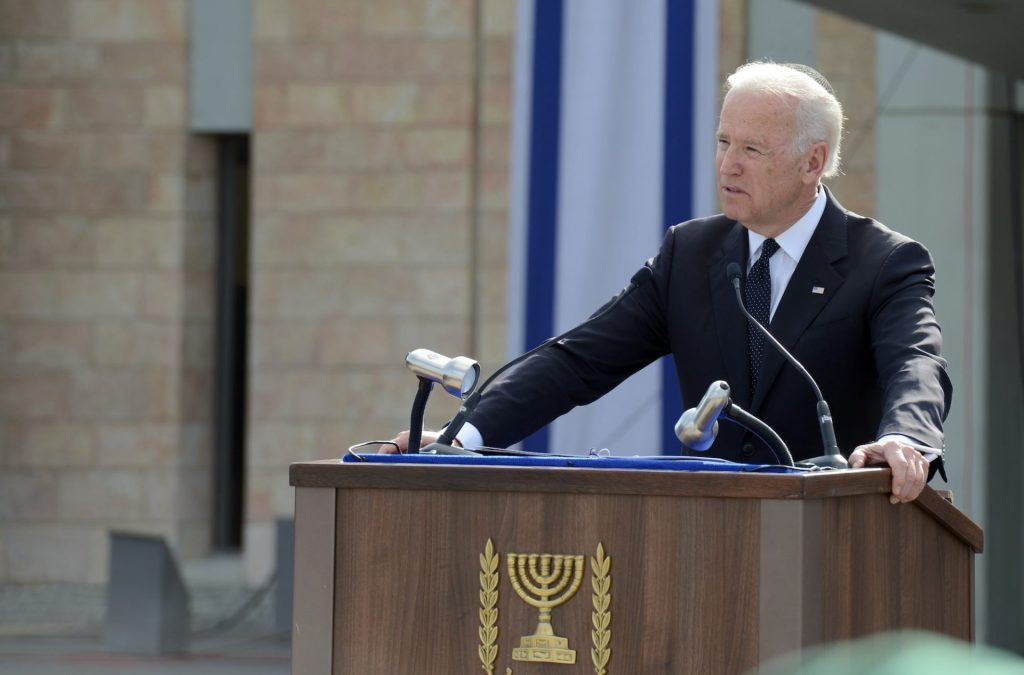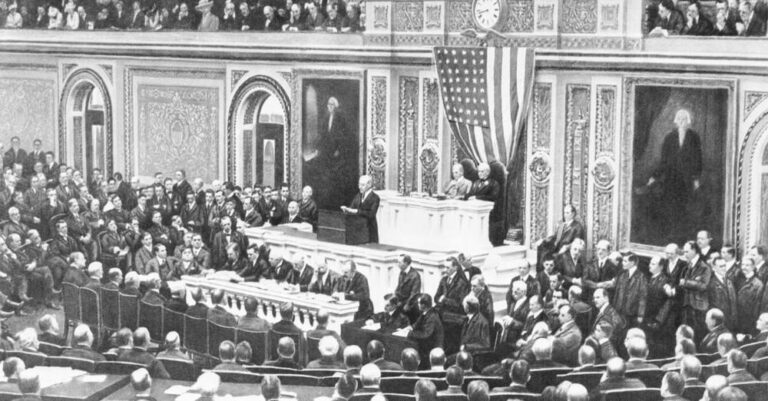A few weeks before the Netanyahu government publicly announced its planned legal reform in Israel, the prime minister’s key associate, Minister Ron Dermer, visited Washington. Dermer informed senior Biden administration officials of the reform’s intention to make the judge-selection process in Israel more American, and asked whether the administration would act against it. Their answer came in one word: Inconceivable.
So, what had been “inconceivable,” within days became entirely conceivable. Throughout most of 2023, President Biden and his administration spearheaded the campaign against altering Israel’s legal system. While there have been American administrations that interfered in Israel’s internal politics before, it was always done to promote diplomatic moves the Americans believed in, such as peace with the Palestinians or territorial withdrawals. Never before had an administration acted as the de facto opposition leader in Israel’s domestic politics.
It was no coincidence that a massive “Biden Save Us” sign was hoisted at large anti-government demonstrations in Tel Aviv. The U.S. president was the driving force behind the opposition to changes in the justice system. Taking a step unprecedented since the 1960s, Mr. Biden boycotted Israel’s Prime Minister for nine months while meeting with other leaders, including Turkish President Erdogan, a well-known champion of the separation of powers in government. Mr. Biden dispatched his Secretary of State Antony Blinken to deliver a veiled warning to Netanyahu, and remind him that U.S.-Israel relations are founded on “shared values […] including our support for core democratic values […] and recognition that building consensus for new proposals is the most effective way to ensure they are embraced.”
Was the president genuinely concerned by the possibility of judges in Israel being chosen by politicians? Recent events provide insight. Mr. Biden has strongly advocated in recent weeks for a reform strikingly similar to Netanyahu’s proposal, one that would enhance political control over the judicial system, in the U.S. case by limiting judges’ tenure. Was his concern truly motivated by the Israeli reform “becoming more divisive”? After all, many of his own initiatives were passed by the Senate with a slimmer majority than the one Netanyahu’s government holds in the Knesset. Was it only the pace that concerned him, claiming “It doesn’t make any sense for an Israeli leader to rush”? To hear this from someone who signed executive orders on his first day in office is strange, to say the least.
Mr. Biden does not give a whit for the workings of the Israeli legal system. Opposition to the Netanyahu government’s planned legal reform served merely as a pretext to weaken a leader whom Biden perceives as a bitter ideological adversary on the fundamental issue of the Middle East: Is Iran an opportunity or a danger? The American administration’s approach was that Tehran should be considered a potential partner for reconciliation. The result was that frozen funds were released and centrifuges kept spinning. As Netanyahu found himself tangled in a heated reform debate, Biden was all too eager to add fuel to the fires of local protest.
Unfortunately, the daylight between Israel and the United States inflicted tremendous strategic damage on Israel. It is no coincidence that Saudi Arabia renewed ties with Iran this year and demanded a nuclear facility as a condition for an alliance with Israel and the U.S.
Even worse, Washington’s cold shoulder has convinced Iran and its proxies that when push comes to shove, Israel will stand alone. Already in April 2023, IDF military intelligence sent a report to the Prime Minister warning of an increased risk of war, partly “due to the growing distance between Israel and the United States […] Iran is the primary beneficiary of that situation because it believes that Israel cannot mount a campaign against it without American backing.” Another senior source, one critical of Netanyahu, confided in me that Israel’s enemies viewed Biden’s de facto boycott of Netanyahu as an opportunity to launch military action against Israel.”
While Mr. Biden’s gross interference in the domestic politics of its close ally was not the cause of the October 7th attack, it was certainly one of the considerations for its timing in the calculations of Sinwar and his handlers.
That is why, now, as the Democratic administration is trying to promote a change, not by consensus, of the United States Supreme Court, it might be a good time for Prime Minister Netanyahu to remind the president at their upcoming meeting that the alliance between our countries can continue only as long as it is based on “shared values […] including our support for core democratic values […] and recognition that building consensus for new proposals is the most effective way to ensure they are embraced.”







